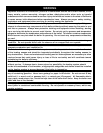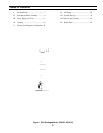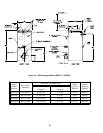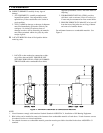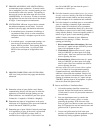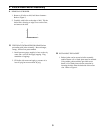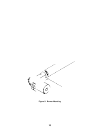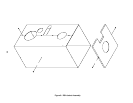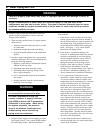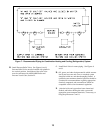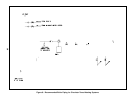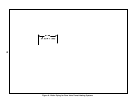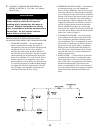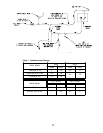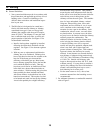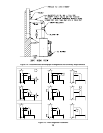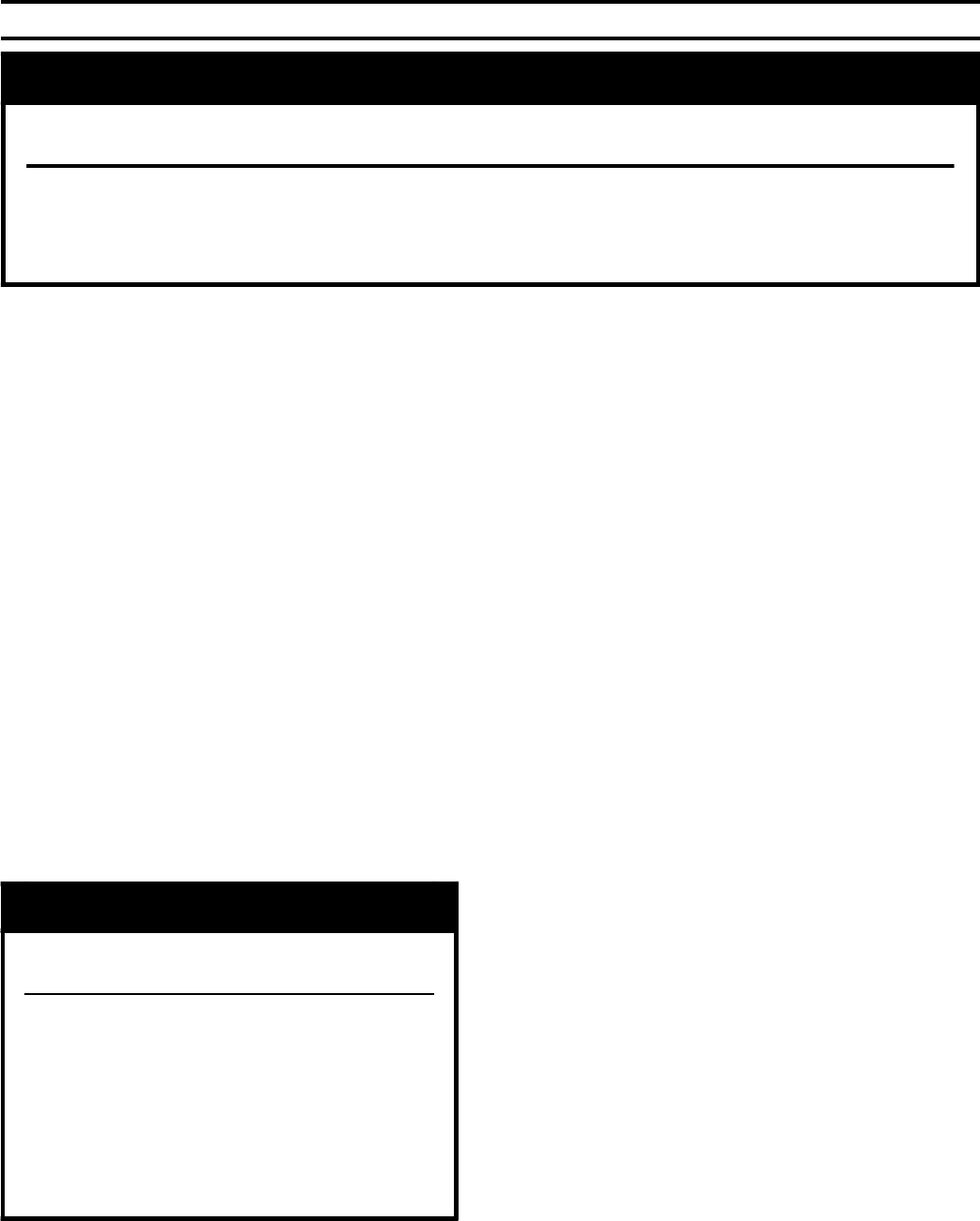
12
III. Water Piping and Trim
A. Design a piping system and install boiler which will
prevent oxygen contamination of boiler water and
frequent water additions.
1. There are many possible causes of oxygen contami-
nation such as:
a. Addition of excessive make-up water as a result
of system leaks.
b. Absorption through open tanks and fittings.
c. Oxygen permeable materials in the distribution
system.
2. In order to insure long product life, oxygen sources
should be eliminated. This can be accomplished by
taking the following measures:
a. Repairing system leaks to eliminate the need for
addition of make-up water.
b. Eliminating open tanks from the system.
c. Eliminating and/or repairing fittings which
allow oxygen absorption.
d. Use of non-permeable materials in the distribu-
tion system.
e. Isolating the boiler from the system water by
installing a heat exchanger.
inch clearance from hot water piping to combus-
tible materials.
a. If this boiler is used in connection with refrig-
eration systems, the boiler must be installed so
that the chilled medium is piped in parallel with
the heating boiler using appropriate valves to
prevent the chilled medium from entering the
boiler. See Figure 7. Also, consult I=B=R
Installation and Piping Guides.
b. If this boiler is connected to heating coils
located in air handling units where they may be
exposed to refrigerated air, the boiler piping
must be equipped with flow control valves to
prevent gravity circulation of boiler water
during the operation of the cooling system.
c. If boiler is used with an Alliance™ Indirect-
Fired Domestic Water Heater, install the
Alliance™ as a separate heating zone. Refer to
the Alliance™ Installation, Operating, and
Service Instructions for additional information.
d. Use a system bypass if the boiler is to be
operated in a system which has a large volume
or excessive radiation where low boiler water
temperatures may be encountered (i.e. converted
gravity circulation system, etc.) The bypass
should be the same size as the supply and
return lines with valves located in the bypass
and return line as illustrated in Figure 10 in
order to regulate water flow for maintenance of
higher boiler water temperature. Set the bypass
and return valves to a half throttle position to
start. Operate boiler until the system water
temperature reaches its normal operating range.
Adjust the valves to maintain 180°F to 200°F
boiler water temperature and greater the 120°F
return temperature. Adjust both valves simulta-
neously. Closing the boiler return valve while
opening the bypass valve will raise the boiler
return temperature. Opening the boiler return
valve while closing the by-pass valve will lower
the boiler return temperature.
e. A water boiler installed above radiation level
must be provided with a low water cutoff device
as part of the installation.
WARNING
System supply and return piping must
be connected to correct boiler pipe.
Burnham recommends sizing the
system circulator to supply sufficient
flow (GPM) to allow a 20°F temperature
differential in the system. When sizing
the system circulator, the pressure
drop of all radiators, baseboard and
radiant tubing and all connecting
piping must be considered.
3. Connect System supply and return piping to boiler.
See Figures 8 and 9. Also, consult I=B=R Installa-
tion and Piping Guides. Maintain minimum ½
WARNING
Failure to properly pipe boiler may result in improper operation and damage to boiler or
structure.
Oxygen contamination of boiler water will cause corrosion of iron and steel boiler
components, and can lead to boiler failure. Burnham's Standard Warranty does not cover
problems caused by oxygen contamination of boiler water or scale (lime) build-up caused
by frequent addition of water.



